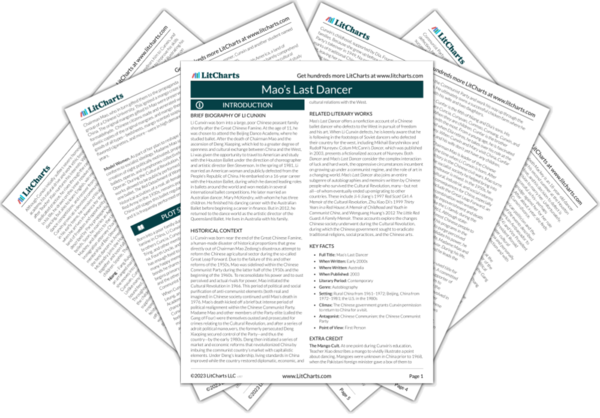Without his family nearby to support him, Cunxin floundered and struggled to find his footing at the academy. The school, its teachers, and its administrators consistently send the message that the students are only valuable for what they can contribute to Madame Mao and the communist cause. In contrast, the Chongs value Cunxin as a human being, not a tool to be used. They pay for his fare because they care about him and his wellbeing, regardless of what he can do for them in return. Thus, they illustrate the importance of emotional support to Cunxin’s—and by extension, everyone else’s—thriving.


